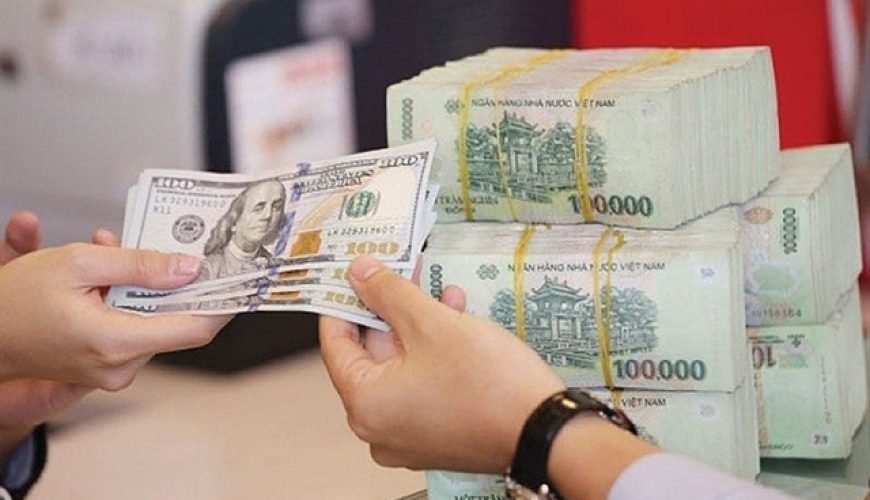Vietnam Currency: A Comprehensive Guide for Travelers
Embarking on a journey to Vietnam? It’s essential to familiarize yourself with the local currency, the Vietnamese dong. In this comprehensive guide, we will provide you with all the essential information about Vietnam’s currency to ensure a smooth and enjoyable trip.
The currency of Vietnam is:
The official currency of Vietnam is the Vietnamese dong (VND). The dong is widely used for daily transactions and reflects the country’s economic diversity. It comes in various denominations, each featuring unique designs that showcase Vietnam’s rich cultural heritage. While electronic payment methods are becoming more popular, cash is still widely accepted, especially in rural areas and traditional markets.
Denominations of Vietnamese banknotes:
Vietnamese banknotes feature the image of revered leader Ho Chi Minh and come in two forms: polymer notes and paper notes. Polymer notes are available in denominations ranging from 10,000 VND to 500,000 VND, while paper notes include 1,000 VND, 2,000 VND, and 5,000 VND. However, the 200 VND and 500 VND paper notes are rarely used nowadays due to their low value. Coins are no longer in circulation in Vietnam.
History of Vietnam’s Currency:
The Vietnamese dong (VND) has a historical background intertwined with the socio-political changes in Vietnam. It was introduced as the official currency in North Vietnam in 1946, replacing the French Indochinese piastre. After the reunification of North and South Vietnam in 1976, the dong became the unified currency of the entire country. Despite economic challenges, the Vietnamese government has maintained the currency’s stability, reflecting Vietnam’s economic progress.
Currency Exchange:
Cash is widely accepted in Vietnam, particularly in smaller towns, markets, and rural areas. Street sellers, small businesses, and local marketplaces generally prefer cash. However, credit cards are widely accepted in urban areas and tourist-centric locations. It’s advisable to carry both cash and cards, as some establishments may accept U.S. dollars for larger purchases, but the local currency (VND) is still more commonly used.
Currency Exchange Rates in Vietnam:
As of early January 2024, here are the exchange rates between the Vietnamese dong (VND) and several other currencies:
1 US Dollar (USD) = 24.505.00 Vietnamese dong (VND)
1 Euro (EUR) = 26,837.00 Vietnamese dong (VND)
1 British Pound (GBP) = 31,209.00 Vietnamese dong (VND)
1 Japanese Yen (JPY) = 186.89 Vietnamese dong (VND)
1 Australian Dollar (AUD) = 16.386.00 Vietnamese dong (VND)
Please note that currency exchange rates fluctuate and can vary slightly depending on the location and service provider. It is advisable to check the current rates before making any currency exchanges to ensure you are getting the most accurate and up-to-date information. You can also check this link for current exchange rate online
For currency exchange, various options are available in Vietnam:
- Banks: Most banks offer currency exchange services, and it’s recommended to convert money at reputable banks for security and accurate rates.
- Currency Exchange Counters: These counters are found in popular tourist locations, major train stations, and international airports. It’s advisable to compare prices before exchanging.
- ATMs: ATMs provide a convenient way to withdraw Vietnamese dong using foreign bank accounts. Consult your bank regarding international withdrawal fees beforehand.
- Hotels/Resorts: Some hotels and resorts offer currency exchange services, although rates may not be as competitive as at banks or specialized exchange counters.
- Gold and Jewelry Shops: In addition to the previously mentioned options, gold and jewelry shops in city centers or major markets also provide currency exchange services. However, it’s important to note that these shops often charge higher rates and may include hidden fees. Before proceeding with an exchange, it is crucial to verify the charges and compare rates with other exchange locations to ensure you get the best value for your money.
Tips for travelers:
- To avoid counterfeit banknotes, check for security features like watermarks and holograms. Exchange currency at reputable banks or authorized counters.
- Keep small denominations for easier transactions, as some vendors may not have change for larger bills.
- Tipping is not mandatory in Vietnam but is appreciated. Tip only when satisfied, and do so with a positive and genuine attitude.
- Bargaining is common in Vietnamese culture, especially in markets. Bargain with a friendly and respectful attitude for a fair price.
- Note that menus in local eateries and coffee shops often use “k” to represent a thousand in Vietnamese currency.
- Simplify the denomination by removing three zeros at the end to make it easier to remember the value.
- When bringing in a significant amount of money, declare it to customs officials at the border.
Conclusion:
With this comprehensive guide, you are now equipped with essential knowledge about Vietnam’s currency, the Vietnamese dong. Understanding the currency will enhance your experience and ensure a hassle-free trip. If you have further questions or need assistance, feel free to contact us. Asia King Travel is dedicated to helping you make the most of your journey.


0 Comment